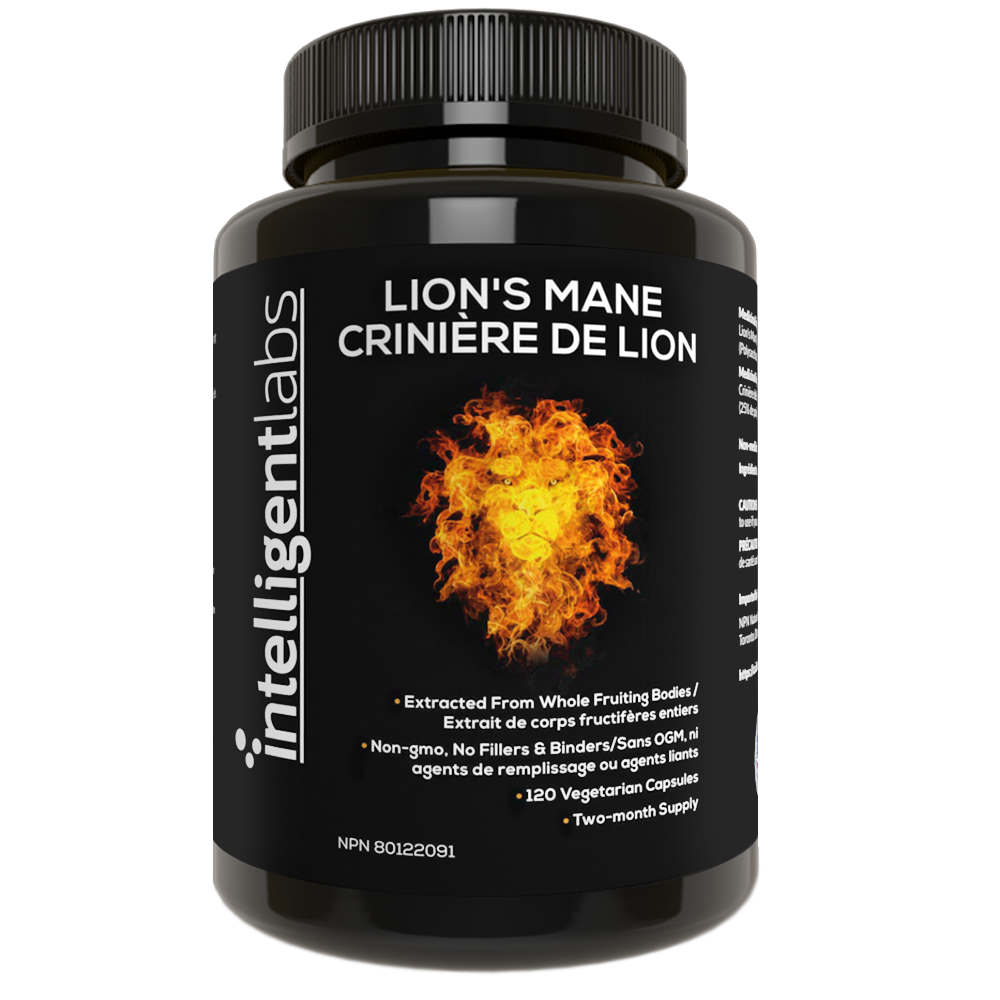Nootropics
Distracted? Here Are 8 Natural Remedies For Focus and Concentration
There’s never a shortage of distractions in today’s always-connected world – there’s social media, games, videos, noise, pets, kids, and more. How can you ever get things done when even the easiest tasks start to feel Herculean? To help you tick items on your to-do list, we’ve compiled several natural remedies for focus and concentration, including a few nootropic supplements. Scroll down to know more!
Table of Contents
Why is concentration so important in everyday life?
By definition, concentration means “to focus and bring all efforts to bear on one thing or activity”. This means ignoring all distractions and putting all your attention on the task that needs to be accomplished.1
Most – if not all – tasks require some level of concentration. In fact, many tasks require intense focus, and failure to do so may lead to costly mistakes, accidents, and even death!
Being able to concentrate allows you to:
- Get things done more efficiently
- Make fewer mistakes
- Think outside the box to get more creative ideas
- Make the right decisions and solve problems faster
- Increase overall productivity
In short, the ability to focus and concentrate is essential for achieving great things and all kinds of success, whether it be personal, academic, business, or workplace-related!
Accomplish more in your day with these 8 natural remedies for focus and concentration
Staying on task is easier said than done. Don’t wait for fatigue and burnout before you try any of these tips:
1) Use nootropics to help you focus and concentrate

We suggest staying away from nootropics that contain caffeine and/or stimulants as these can give you an artificial high. Instead, use natural nootropics that can help you focus, stabilize your mood and take the edge off anxiety.
For beginners, we suggest taking a single-ingredient, natural nootropic like Phosphatidylserine or Lion’s Mane mushrooms.
Phosphatidylserine is a naturally occurring phospholipid in the body, with about 50% of it concentrated in our brains.2 On the other hand, lion’s mane mushrooms are delicious mushrooms that can be taken in supplement form or eaten in dried or fresh form (here are our favorite lion’s mane mushroom recipes).
2) Caffeine to set the mood for the day
Coffee helps millions of people start the day ‘right’. The caffeine found in coffee is a mild stimulant that quickly boosts alertness and energy levels. It’s perfect for drinking in the morning – and evening if you work nights.
But try not to go beyond 400mg of caffeine (that’s about 3-4 cups of brewed coffee) per day as too much of this stimulant can cause unwanted side effects, such as palpitations, anxiety, irritability, and tremors. 3
3) Eliminate the distractions
Visual
Look for a quiet area with minimal visual distractions. Think of a horse with blinders on – they only see what’s in front of them. Try facing the wall so you’re not tempted to look up every time someone goes through the door or passes by the window.
Auditory
Turn off the TV and put your phone on silent mode. Try using noise-canceling headphones to block out sound. They’re not perfect by any means but they do help minimize noise from the outside world. Play some music that helps you focus and concentrate.
Olfactory
Getting distracted by the smell of food happens to even the most focused person. Take breaks when necessary to satiate hunger pangs and food cravings. And don’t forget to stay hydrated and drink lots of water, too.
4) Use technology to your advantage
There are plenty of apps out there that can help you focus. On iOS, the built-in Focus mode lets you block unnecessary notifications. You can also use a Pomodoro timer, where you work for 25 minutes straight and then take a 5-minute break (timings can be adjusted according to your preference but 25-5 is the most common).
5) Get enough sleep
Sleep deprivation can magnify distractedness. This is particularly dangerous when driving a motor vehicle – a skill that requires alertness and focus.4 Take a break when you need to, especially if fatigue and lack of sleep can cause harm to you and the people around you.
6) Have a to-do list
This is one of the most practical natural remedies for focus and concentration. A daily list of things you need to finish in a day, preferably sorted by priority, can help you focus on the most important things. Start with the most urgent tasks on the list and strive to finish everything within the deadline.
7) Build good habits and routines
It’s fun to YOLO and leave everything to chance every once in a while, but for daily work, a routine is actually pretty important. It helps you organize your thoughts and actions and be more efficient at repetitive tasks. A predictable schedule limits procrastination, reduces stress levels, and helps you keep track of your goals.
8) Take breaks throughout the day
Working continuously with little to no breaks can quickly lead to burnout. It might sound counterintuitive, but breaks can actually help improve your mental well-being. A change of scenery can inspire you to come up with new ideas and think outside the box. More importantly, a well-timed break can help you re-focus and get back on track.

What are examples of distractions in the workplace?
It’s okay to get distracted every once in a while – it’s important to live life and have fun, too! But having trouble concentrating when you really really need to can have negative repercussions. Lots of things can affect your ability to concentrate, for example:
Technology: Smartphones and tablets are major distractions, often being the first thing people reach for in the morning and the last one they put down before bed.5
Lack of work-life balance: This is especially common in remote work settings. Household chores, child and pet care, and a lack of designated workspace can significantly impair productivity.
Noise pollution: This is a widespread issue especially in urban areas, disrupting not only focus but can also lead to stress, sleep disturbance, heart disease, and high blood pressure. 6
Multitasking: While juggling simple tasks can sometimes increase efficiency, multitasking with complex or dangerous tasks can lead to decreased productivity and increased risk of mistakes. For example, multitasking and/or getting distracted while driving or operating heavy machinery is very dangerous. 7
Conclusion
From hunger pangs to sudden emergencies and even the state of your mental and emotional health, there is certainly no shortage of distractions out there. But concentration is absolutely crucial to accomplishing tasks and succeeding in various activities.
We hope these natural remedies for focus and concentration gave you ideas on how to boost your performance and productivity the next time an important deadline comes up!
References:
- “Dictionary.com | Meanings & Definitions of English Words.” Dictionary.com, www.dictionary.com/browse/concentrate. ↩︎
- Ma, Xiaohua et al. “Phosphatidylserine, inflammation, and central nervous system diseases.” Frontiers in aging neuroscience vol. 14 975176. 3 Aug. 2022, doi:10.3389/fnagi.2022.975176 ↩︎
- Boston, 677 Huntington Avenue, and Ma 02115 +1495‑1000. “Caffeine.” The Nutrition Source, 30 July 2020, www.hsph.harvard.edu/nutritionsource/caffeine. ↩︎
- de Mello, Marco Túlio et al. “Sleep disorders as a cause of motor vehicle collisions.” International journal of preventive medicine vol. 4,3 (2013): 246-57. ↩︎
- Wheelwright, Trevor. “Cell Phone Behavior Survey: Are People Addicted to Their Phones?” Reviews.org, Reviews.org, 24 Jan. 2022, www.reviews.org/mobile/cell-phone-addiction ↩︎
- National Geographic Society. “Noise Pollution.” National Geographic Society, 15 July 2019, www.nationalgeographic.org/encyclopedia/noise-pollution ↩︎
- Hirsch, Patricia, et al. “Putting a Stereotype to the Test: The Case of Gender Differences in Multitasking Costs in Task-Switching and Dual-Task Situations.” PLOS ONE, vol. 14, no. 8, 14 Aug. 2019, p. e0220150, https://doi.org/10.1371/journal.pone.0220150. ↩︎




